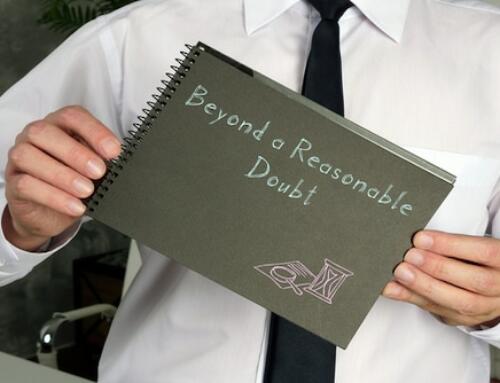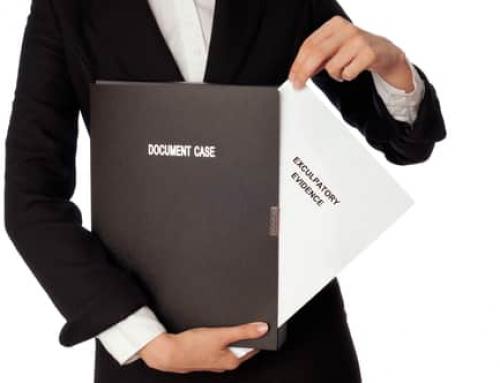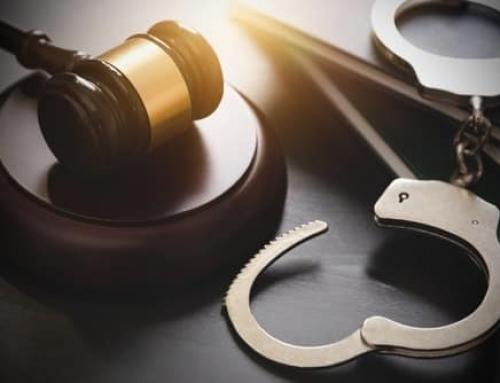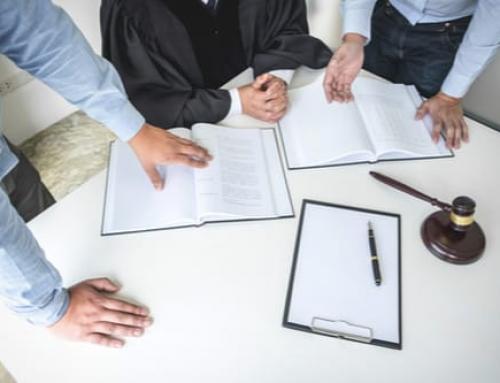You have been arrested, and you are fairly certain that you are guilty of the crime alleged. You were doing something you shouldn’t have, you got caught, and now you are facing the consequences. Is it worth hiring a defense lawyer? Or, will you end up paying for the same inevitable result of facing a conviction at trial?
Many people assume that once they have been arrested for a crime, all hope is lost. But, while there are unfortunate biases and unfair aspects to the criminal justice system in Philadelphia, an arrest does not equate to a conviction. There are several different ways to fight criminal charges; and, even if you cannot avoid consequences entirely, an experienced criminal defense lawyer will be able to help mitigate the immediate and long-term effects of your arrest. This is true regardless of whether you believe you are innocent or guilty.
7 Ways a Criminal Defense Lawyer Can Help Even if You are Guilty of a Crime
Here are seven ways an experienced criminal defense lawyer can help you if you are facing criminal charges in Philadelphia:
1. Determining Whether You are Actually Guilty
Before you start making assumptions about your case, you need to speak with a lawyer to find out if you are actually guilty of the crime alleged. Pennsylvania’s criminal laws are complicated, and it is very possible that either: (i) the act you committed does not amount to a criminal offense under Pennsylvania law; or, (ii) even if you did something illegal, you are not guilty of the specific crime with which you have been charged.
With the severe penalties that most crimes carry, you cannot afford to assume that you committed a crime. Moreover, even if you did commit a crime, this does not necessarily mean that you deserve to be (or will be) found guilty in court. The prosecution still has to prove your guilt beyond a reasonable doubt; and, if the police or prosecutors violate your constitutional rights at any stage in the process, this could provide grounds to seek a dismissal even if you broke the law.
2. Securing Pre-Trial Release
If you are being held in custody pending the outcome of your criminal trial, an attorney may be able to help you secure bail. In some cases, it may be possible to secure your release without bail as well. Depending on the facts of your case, your attorney can seek to have you released on bail, on your own recognizance, with a sign on bond, or on special conditions.
If the prosecution has secured a Nebbia order (which requires proof that your bail is not being paid with illegally-sourced funds), an attorney can assist under these circumstances as well. Your attorney can work with your family members or trusted confidants to secure the funds necessary for your release, and your attorney can appear at a Nebbia hearing on your behalf.
3. Seeking Entry Into a Diversion Program
If you are facing trial as a first-time offender, your attorney may be able to work with the prosecutor’s office to have you placed into a diversion program. These are programs that “divert” defendants’ cases from the trial, and they allow defendants to avoid having a criminal record if they complete the program successfully. There are several diversion programs that are available to first-time offenders in Philadelphia under varying circumstances, including:
- Accelerated Rehabilitative Disposition Program (ARD)
- Alternative Misdemeanor Program I (AMP I)
- Alternative Misdemeanor Program II (AMP II)
- Drug Treatment Court
- Section 17 and Section 18 Drug Programs
- Small Amount of Marijuana Program (SAM)
- Summary of the Diversion Program
4. Negotiating a Plea Deal
If you are not eligible for a diversion program, or if for any reason seeking entry into a diversion program is not in your best interests, then your attorney can seek to negotiate a plea deal on your behalf. Negotiating a plea deal can offer a number of benefits—including avoiding the inherent uncertainty of going to trial. Oftentimes, prosecutors will have incentives to negotiate plea deals as well; and, under the right circumstances, negotiating a plea can greatly reduce the risks and consequences of a criminal arrest.
5. Avoiding a Guilty Verdict
As referenced above, even if you have committed a crime, this does not necessarily mean that you will be found guilty at trial. The prosecution must prove your guilt beyond a reasonable doubt, and this is not an easy task—especially when there is an experienced defense lawyer on the other side of the aisle.
Your defense lawyer will examine all possible defenses to the charges against you, including defenses based on violations of your constitutional rights. It only takes one successful defense to avoid a conviction; and, with a strategic approach, your attorney might be able to help you walk free in spite of the facts at hand.
6. Keeping You Out of Prison
Even if avoiding a conviction is not a realistic outcome given the circumstances of your case, an experienced criminal defense attorney may still be able to help you by keeping you out of prison. Whether through negotiating a plea deal or presenting strategic arguments at the sentencing stage of your trial, your attorney can use his or her knowledge and experience to try to make sure you are able to go home.
7. Reducing Your Sentence
Finally, in the most severe circumstances, an experienced criminal defense attorney will be able to help you by fighting to reduce your sentence. Philadelphia prosecutors push hard for maximum sentences, and Philadelphia judges are not generally known for voluntarily exercising leniency. But, there are defense strategies that can be utilized to mitigate the consequences of convictions—even for very serious crimes—and you owe it to yourself to hire an attorney who can protect you to the fullest extent possible.
Request a Free Initial Consultation with Philadelphia Criminal Defense Lawyer Brian Fishman
Are you facing criminal charges in Philadelphia? If so, we encourage you to contact us promptly for a free consultation. To speak with criminal defense lawyer Brian Fishman about your case confidently, call 267-758-2228 or tell us how we can reach you online now.






